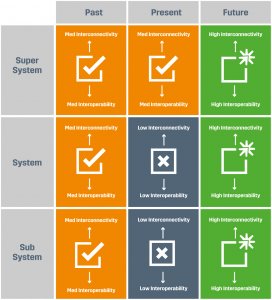

Key Features
The Oil & Gas Technology Centre is calling for innovative ideas and concepts that will have a material impact on this transformation. They have a total fund of approximately £1m which they are looking to distribute to form a portfolio of projects that should be deliverable in a 3 – 24-month timeframe.
Programme: The Oil & Gas Technology Centre - Open Innovation Programme
Award: A share of £1m
Opens: 5th Jun 2017
Closes: 30th Jul 2017
The Open Innovation Programme helps the Oil & Gas Technology Centre to identify, accelerate and deploy innovative technologies to unlock the full potential of the UK North Sea. The centre works with the oil and gas industry, academic institutions and the wider technology community to deliver theme-based technology showcases, Tech Talks and workshops that inspire new thinking and collaborative innovation.
The Call for Ideas process is a key part of the Open Innovation Programme. It’s the OGTC’s primary means of reaching out to the technology community to identify, support and fund innovative solutions.
Introduction – Plug and Play
What does plug and play mean? In the Oil and Gas Industry the term is not well defined and there is no common agreement on its meaning. In general, it conveys a message of inter-connectivity and the ability to connect modular equipment, in an easy and effective way, to form a production system that is fit for purpose and rapid to deploy.
The OGTC believes a move towards the use of subsea ‘plug and play’ equipment will significantly reduce UKCS Small Pool development CAPEX and lead time for subsea tiebacks. The first step in making this move is to provide a clear aspirational definition of ‘plug and play’ in the context of UKCS Small Pools.
For more information, click here.
Unlocking the 225 marginal discoveries in small pools across the UK Continental Shelf. Transforming the subsea development life-cycle approach to support: rapid engineering and delivery of a project; full interconnectivity between modular subsea components; the re-use of subsea equipment from one field to another; interoperability with present and future systems; and the use of a range of key supplier specific subsea components.
Challenge themes
If the challenge is considered following the ‘Nine Windows’ technique see table below:

then the scale and breadth of the opportunity becomes clear. A qualitative assessment of the inter-connectivity and inter-operability of each level also supports the view that addressing this challenge will require consideration from the entire industry.
At a super-system level, there is the challenge of operator engagement and the requirement to collaborate to achieve the aspirational PnP goal. In the future, this may also extend outside of the industry and require collaboration with ORE industry operators. A fundamental change in behaviours will be required to make the steps towards plug-and-play possible and it is believed these steps are not insignificant.
At a system level, the key challenge will be on the interoperability of plug-and-play systems with existing infrastructure. The practical considerations of implementing a shift to ‘design for disassembly’ is also required at this level to understand the investment and resource required to recover and possibly refurbish and re-use equipment from field to field.
At a sub-system level, the interconnectivity, the interoperability and the challenge of design for re-use will be key. As the UKCS oil and gas industry has matured the level of complexity in subsea equipment has increased, which is a huge positive in achieving hydrocarbon recovery, but it has led to a low level of interconnectivity/interoperability. It is thought the main challenge will be engaging across the supply chain to implement the changes required to achieve the PnP aspiration.
Theme 1: Super System Proposals are sought to address the super system challenge and the key areas of interest are (but not limited to):
Theme 2: System & Sub-System Proposals are sought to address the system and sub-system challenge and the key areas of interest are (but not limited to):
Proposals will not be considered if they focus too heavily on:
For background and more information on these themes, click here.